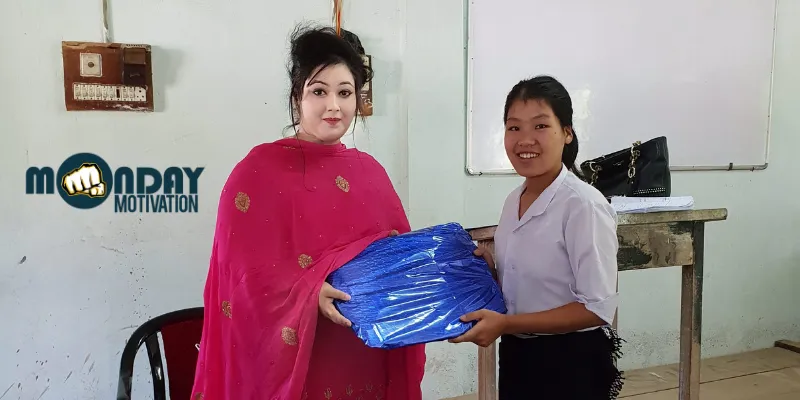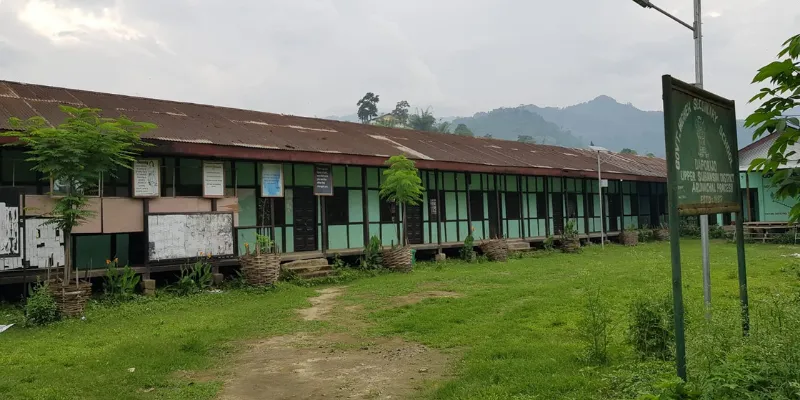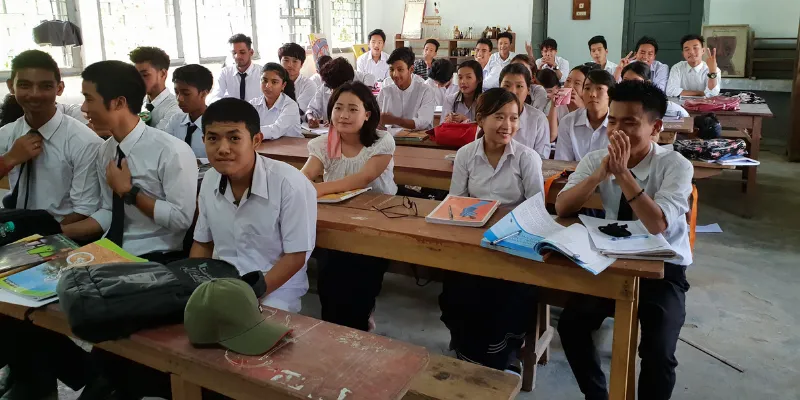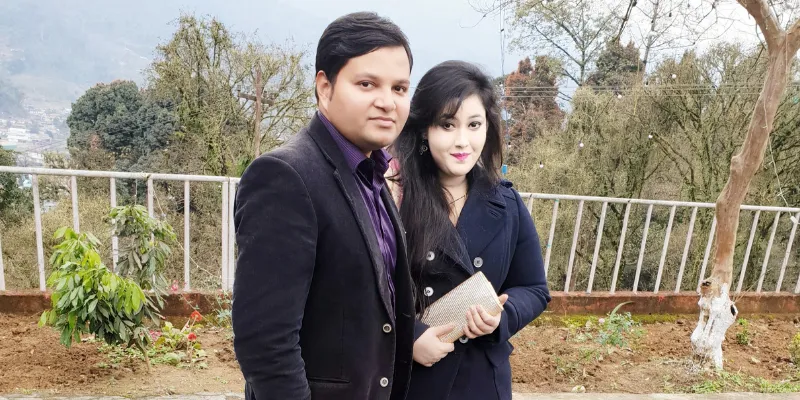IAS officer's wife endears physics to 94 students in Arunachal, pass percentage rises from 21 to 80
Ruhi Danish Ashraf taught the subject of Physics to 94 students at a government school in the remote district of Upper Subansiri, Arunachal Pradesh and helped 80 percent of them pass in the subject.
Around 100 km from Itanagar, a meandering hill track takes one to the Upper Subansiri district of Arunachal Pradesh. With snow-clad mountains on one side, and tributaries of Brahmaputra criss-crossing the plains on the other, the ‘astoundingly beautiful’ region is home to around 83,000 people, including several tribal families.
Ruhi Danish Ashraf was first introduced to this district in 2016 when the 28-year-old moved there with her husband, Danish Ashraf, an IAS officer.

Ruhi giving away a gift to one of her students for exemplary performance.
“Upper Subansiri housed around three schools, but most of the time, they were understaffed. It went to such an extent that it began affecting the grades of the students. That gave me the impetus to take up teaching,” Ruhi tells YourStory.
The 12th grade in Government Higher Secondary School in Daporijo, which is the district headquarter, did not have a Physics teacher for over five years until Ruhi, an an electronics engineer herself, stepped in to teach the students for free. And in March 2019, Ruhi’s efforts bore fruit as 80 percent of her students passed the subject. In the previous year, only 21 percent of the students had cleared physics in Class 12.
Also read: This school in West Bengal village is proving to be a beacon of hope for underprivileged kids
Ruhi’s endeavours

Government Higher Secondary School in Upper Subansiri, Arunachal Pradesh.
The literacy rate in Upper Subansiri is a low 64 percent according to the demographic report published by Digital India. This can primarily be attributed to non-availability of resources in schools, especially teaching staff.
When Ruhi learnt of the requirement for a Physics teacher in the government school, she promptly decided to take on the responsibility.
“I was a little nervous initially since I did not have any prior experience as a teacher. Besides, I had stage fear. It wasn’t easy for me but I made up my mind to conquer all my fears to teach the students.”

Ruhi taught the subject of Physics to 94 students at a government school in Arunachal Pradesh.
She started with familiarising herself with Class 12 concepts like optics, electromagnetic induction and radiation from NCERT books. As she began tutoring her class of 94 students, she realised many of them were not well versed with even the basic concepts.
“Since the students did not have a Physics teacher for long, they had to learn many of the lessons by themselves. Their academic progress had become slow and intermittent. To compensate for this, I began taking extra classes to help them. They were always eager to grasp and understand new concepts.”
She went a step ahead, and incorporated smart and new methods of teaching – such as using a projector to display visual content relevant to the subject matter. She also brought a fun element to her teaching – using clips of superhero movies to explain gravitation and momentum. However, it was not easy going to implement this. Since internet connectivity was poor and erratic, Ruhi downloaded the videos when she travelled to her hometown Delhi. In class, she organised activity-based modules and conducted frequent tests to break the monotony of lectures.

80 percent of the students passed in Physics after Ruhi became the teacher.
Ruhi had begun taking classes in the middle of the academic year, and when she saw she would not be able to complete the entire syllabus, she prepared notes for her students to study. Her teaching techniques and the connect she made with the students made her a favourite among them.
Also read: Elementary Skills: the key to transformation of education in rural India
Bringing Physics to 94 students
Says Kibi Dugi, a Grade 12 student from the Government Higher Secondary School, Daporijo:
“Ruhi ma’am worked really hard to finish the entire curriculum. Her teaching methods were such that I was able to understand things quickly. A few days before the final exam, she prepared and distributed notes and a question bank, which proved to be very useful. I passed with 56 percent in Physics only because of her.”
Ruhi says that as she put in efforts to combine theoretical knowledge with practical application, her students also took keen interest in the subject. “Back in January, in one of my classes, I explained the functioning of an electroscope. The very next day, my student Okam Nalo walked into class with an electroscope. He had made the device using aluminium foil and plastic bottles. The fact that I was able to make a difference to someone’s life was an overwhelming feeling,” she adds.
How it all started

Ruhi with her husband Danish Ashraf, an IAS officer.
Ruhi’s husband Danish Ashraf took charge as the Deputy Commissioner of the Upper Subansiri district in 2016. A few students had approached him asking for a Physics teacher for their school. “When the students of the government school visited me and expressed their concern at not having a Physics teacher, I was appalled. The first thing that came to my mind was to ask Ruhi if she was willing to fill in. She agreed without giving it a second thought. Both of us knew that finding someone to teach in this part of the world would be a herculean task,” Danish tells YourStory.
“I am extremely proud of my wife for being able to do this,” Danish says.
Also read: These six secret techniques to improve education background






